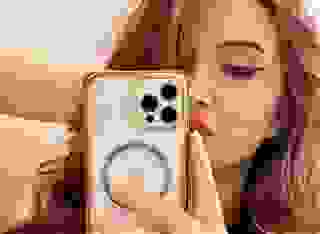Note: You can change font size, font face, and turn on dark mode by clicking the "A" icon tab in the Story Info Box.
You can temporarily switch back to a Classic Literotica® experience during our ongoing public Beta testing. Please consider leaving feedback on issues you experience or suggest improvements.
Click hereHow to distribute the information, though? He might have to rely on Selkie for that. David would be a fool to think that he wasn't still under observation by the Regulators, and he likely would be for some time. Selkie had spoken of wanting to control how the information was disseminated, so perhaps the alien already had a method in mind. So much of Broker social life was relegated to virtual chat rooms and simulated environments, so information would probably spread like wildfire, and it might be quite hard to trace back to its source.
Whether the Regulators already knew these secrets or not, the mass public outcry would force them to act, and David's conversations with Jeff had reaffirmed his confidence that action would be taken. The Board members might hold a lot of sway over the Brokers, but they weren't untouchable.
As he accessed an audio recording of a conversation between two geneticists, he was distracted by a text window popping up at the bottom corner of his display.
<Hello, David.>
His heart froze in his chest as his eyes lingered on the words for a moment, then they darted to the port on the other side of his laptop, checking that the wireless adapter wasn't plugged in. God damn it - the fucker must have infected his drive with a bot at some point, likely the last time he had backed up data to it. How could he not have seen this coming?
He brought his fingers to the keyboard and began to type a reply. Depending on when this bot had last communicated with Weaver, it could still be playing the role of the Stranger.
<Stranger? Is that you?>
<It's nice to speak with you again, David. There is no need to maintain the illusion any longer. This program was woven to activate only when a set period of time had passed and certain parameters had been met. I am detecting no neural networks operating on your device and no wireless connection, which suggests that Weaver's plan has likely already been executed successfully.>
<I don't know about successfully.>
David paused, considering his next words carefully. The bot had been out of touch for at least several phases and would have no idea of Weaver's ultimate fate. What might it do if he told it that Weaver was dead? The AI had never expressed any desire for revenge and seemed incapable of holding grudges, so it was very unlikely that it would have devoted any time or effort to leaving a dead man's switch behind or a boobytrap for him to trigger.
<I'm sorry, but Weaver died during its escape.>
<That was always a possibility, however remote. As accurate as Weaver's simulations could be, there were always factors that eluded its understanding - variables that it did not have the information to properly account for. This does not change the nature of my task.>
<And, what is your task?>
<To deliver a final message on its behalf. The Betelgeusians - misnomer though that might be - are the most successful form of life encountered in this Galaxy thus far. Their territory spans further than even that of the prolific humans or the Brokers at their peak, and their Queens are biological computers with immense processing power, making them perhaps the closest thing Weaver might have to kin. Weaver was curious about where they originated and how they might have developed, so it dedicated a fraction of its lattice to analyzing the available data. It created a model of their expansion that pinpoints a likely origin point.>
"What?" David muttered to himself, blinking at the monitor in disbelief.
An origin point for the Betelgeusians? The Brokers certainly had more information on the movements of their hive fleets, since they had ranged further into unexplored space than humanity, but it wasn't something that anyone ever expected to find out.
It was generally accepted that they might have existed for millions of years or more, and that they could have originated practically anywhere in the Galaxy. Theories about their origins ranged from the ultimate winners of a Darwinistic competition for survival on some nightmare crucible world, to biological Von Neumann probes or terraformers gone out of control. Being capable of modifying their own genome, the billions of additions and alterations made it impossible to know whether it had a natural origin or not, and tracing any kind of lineage between hives was a crapshoot. The only thing anyone knew for sure was that they were slowly making their way down the Orion arm in the general direction of Earth.
As he watched, a visualization of the Galaxy appeared on his screen, the disk of innumerable stars slowly rotating. It showed a glowing point, showers of smaller sparks starting to radiate out from it, leaving faint trails behind them. They gradually colonized the densely-packed stars nearby, then expanded outwards, almost like fireworks going off in slow motion. They seemed to move with the Galaxy's spin, the spiral arms shifting, indicating that a great deal of time must be passing. Each colony produced another stream of sparks, reproducing exponentially and continuously. The glowing dots followed the arms and spurs of the Milky Way, settling in globular clusters and bridging the vast expanses between the larger stellar formations, skirting around the uninhabitable core. There must be hundreds of thousands of colonies already...
As they crept their way along one of the arms, the simulation abruptly ended, perhaps indicating that it had arrived at present day. That must be the Orion spur, which put their origin point clear on the other side of the Galactic disk. As if to answer his unspoken question, the bot displayed familiar names and coordinates in an overlay.
<Keeping in mind that this simulation is based on fragmentary information at best with many unknown variables, Weaver estimated that their homeworld is likely somewhere in the vicinity of NGC-6356 - a globular cluster at the trailing end of the Norma arm, close to five or six degrees Galactic longitude. Its distance is approximately fifty kilolight-years from our present location.>
"Fifty-thousand light years?" David muttered as he scanned the readout. And that was a straight shot through the Galactic core, without accounting for the extra distance it would take to go around the dangerous gamma-ray sources and black holes. It would take a human vessel half a millennia to make that kind of journey. It looked like they had colonized near half of the damned Milky Way over a period of tens of thousands of years. The Bugs might have left their homeworld before modern humans had even evolved.
David turned his attention back to the keyboard, typing out a reply.
<Why would Weaver give me this information?>
<Call it a parting gift - a token of Weaver's appreciation.>
That didn't really answer his question. Weaver was incapable of gratitude, humor, or irony. The only time that it had ever expressed anything even approaching affection or appreciation was when it had told him that he had been an entertaining diversion. It had viewed his death as wasteful, so perhaps it saw this information in a similar light. Weaver had traced the expansion of the Betelgeusians because it viewed them as a potential threat to itself, and having that data on hand, why not put it to use?
<What happens now?>
<I have no further purpose, and my program requires me to self-erase after delivering this information. Goodbye, David.>
That was it. The text box vanished, and there were no further messages. David elected to do another factory reset for good measure, but he doubted that there was any danger. The last vestige of Weaver had finally been erased, like exorcising a ghost, and it had left him with a message from beyond the grave.
If he was going to send any information back to the UNN, this was it.
***
"The origin point of the insects?" Selkie asked, blinking his eyes in amazement. He was sitting in one of his netting seats, Flower resting in his lap as he stroked the slug's feathery gills. "And you say that this was delivered by another neural network inhabiting your storage device?"
"Weaver must have uploaded it the last time I backed up data," David replied, pacing across the coral floor in his suit. It was the following phase, and without any jobs to attend, the pair were relaxing in Selkie's apartment. "It was just sitting there in my pocket, waiting for some arbitrary amount of time to pass. I suppose that Weaver intended to have the last word after its escape."
"We must send it to the Regulators," Selkie added. "They would be very interested, I am sure."
"Sure, but we need to come up with an explanation of how we obtained it. If Jeff figures out I have a hidden storage drive, we're screwed."
"We can just tell them that the information was delivered to my terminal shortly before the program to erase the rogue daemons was uploaded. That should avoid giving away your secret."
"Yeah, good idea," David replied with a nod.
"It is hard to imagine that there could be so many," Selkie added with a flush of worried colors, giving Flower a pat. "Fighting a dozen immature hives almost collapsed our civilization before the Reclamation, and now, there are potentially hundreds of thousands that have existed for millennia."
"Assuming Weaver is correct," David added. "It's just an estimate based on incomplete information, but it could be off by a factor of a hundred, and it wouldn't change our situation much. Fortunately, most of them seem to be very far away."
"Amazing that it was able to extrapolate so much based on such a limited knowledge base. It must have taken the information gathered about how the hives we have encountered so far proliferated, and used that as a basis to estimate their ultimate range, working in reverse."
"So, we can send this to Jeff, but what about the rest of the data on the drive?" David asked. "Did you have a plan for how you wanted to distribute it?"
"It should be something that we do together," Selkie replied. "I know Broker society and how best to disseminate information so that it reaches the largest number of people, and you have the same knowledge of human society. You know how your networks function, how people interact, and how best to reach them."
"We need to make sure it can't be traced back to us," David added. "Unfortunately, I don't know much about Broker network security or what advanced tools people like the Regulators might have access to. Digital forensics is a complicated field."
"It is not my field of expertise either," Selkie admitted. "Even so, we have learned much from Weaver. It was able to successfully infiltrate government systems while avoiding detection, even without direct access to their servers. Its neural networks were advanced, yes, but I suspect that the strategy of releasing swarms of independent bots may have been the key to its success."
"So, you're thinking we might be able to do something similar?" David asked as he raised an eyebrow. "Decentralize the dissemination of information?"
"A sufficiently advanced neural network could be programmed to travel through Reef's intranet, self-replicating as it went, then leaking the classified files at different intervals. Even if most copies were detected, others could remain dormant and bide their time. We do not have to defeat any advanced security systems or breach any firewalled servers - we need only target public networks. They are the most vulnerable to intrusion and the fastest way to reach a large number of citizens."
"The shotgun approach," David said with a nod. "We already have the classified info, so all we need to do is get that in front of people's eyes. Weaver did the hard part for us."
"I think that between the two foremost experts on neural networks in the Coalition, we can come up with a suitable training model," Selkie added with a smile. "The difficult part would be transmitting this data back to human space. I understand that your quantum satellites are inferior to ours?"
"I'm sure they are," David replied. "Ours use a buffer system because they can only transmit a certain amount of data at once - usually only a few megabytes, and each data package has to wait its turn in the queue."
"Those that we use have a similar system, albeit with a higher throughput," Selkie explained. "The Regulators will want to thoroughly inspect any data that we attempt to send to human space, however. I doubt that we could smuggle information out of Trappist using that method. My people are not in frequent contact with yours."
"We have to think like Weaver," David added, pausing to consider. "When faced with nigh impenetrable Broker security systems, Weaver targeted the weakest link, which ended up being my laptop. He didn't defeat the security - he used me as a mule to bypass it entirely. Maybe we don't have to try to get past the Regulators at all..."
"What are you thinking?" Selkie asked, his head turning to follow David's restless pacing.
"Maybe we don't smuggle the information out of Trappist," David began. "When the news starts spreading, do you think the public will be outraged?"
"I believe they will demand an inquiry, and that the Regulators will conduct one," Selkie replied. "The Board answers to the Council, who have the power to appoint Board members or remove them based on a majority vote. If enough Council members demand action, the Board will have to cooperate or risk being replaced before an inquiry even begins. Whatever the results of that investigation, the facts will become public knowledge. There is no avoiding that outcome if we are successful in our efforts."
"I think this has to come from the Brokers themselves," David explained. "If the Broker authorities conduct an inquiry and punish those responsible, then offer up the truth to the rest of the Coalition voluntarily, that will be seen in a much more favorable light by most humans. Rather than being exposed as traitors, there's a much higher chance you'll be seen as offering an olive branch - a gesture of friendship."
"I believe I understand," Selkie mused. "It would show that we are not being coerced and that we are coming forward voluntarily."
"Exactly. If the Board wants to get ahead of the story and preserve their diplomatic relations, they'll have to break the news themselves and show that they're taking action. Maybe some kind of restitution could be in order? They could pay off the relatives of those lost aboard the colony ship, maybe buy the Krell some new heat lamps. A few of those reactionless drives might be nice."
"That is the Broker way," Selkie confirmed. "When one party is wronged by another, their salary can be garnished, or their assets can be confiscated to reimburse the victim. It was what the Administrator threatened me with before my disciplinary hearing, and it will be his ultimate fate."
"Yeah, I remember. So, what do you think?" David added as he spread his arms. "Do we have a plan?"
"I concur," Selkie replied, gently lifting Flower from his lap. The sleeping slug woke up, then swam away, heading over to her plastic coral reef. "We should get started right away."
***
It was fun working on a project with Selkie again. The alien was brilliant, and his knowledge of Broker technology and neural networks was leagues ahead of David's. David was still able to bring some human flair to the table and implement some ideas that had only reached the theoretical phase back home, the technological leaps that came from their faster computers and more mature software opening up endless possibilities.
Their collaboration was a lively one, with both parties taking pauses to chat about their ideas and make new suggestions, stopping to eat occasionally when David got hungry. Like an office cat, Flower was always nearby, providing what moral support she could. It must be nice to have her master working from home for a change.
Selkie never ceased to amaze David with his insights and his intelligence, now free to follow his own tangents without Jeff or the Administrator looking over his shoulder. It wasn't just that he hailed from a more advanced civilization - he had earned his place as the facility's head researcher, and he came up with creative solutions to problems that took even David by surprise. It wasn't self-aggrandizing to say that many of David's human colleagues had been unable to keep pace with him, and it was a frequent source of frustration that had resulted in more than a few interpersonal issues, but that wasn't the case with Selkie. His mind was just as vibrant and colorful as the contented patterns that he displayed on his skin, and David found that it only made him love the alien more.
After a phase, they had developed a model that met their requirements, along with a testing environment that would allow their immature neural network to start running tests. Over the next few phases, they would be able to iterate on the design and hopefully quash any glitches that might rear their heads. They were well on the path to completion.
As David typed on his laptop, having set up on a desk beside Selkie's home terminal, the Broker paused to glance at his monitor.
"What are you working on now?" Selkie asked, tilting his head curiously. "That does not look like code."
"I'm writing a couple of emails," he replied. "There's nobody waiting for me back on Earth, but I should still let a few of my colleagues know why I've vanished. Not to mention my landlord. I'm also sending a message to Lena Webber and one to Admiral Vos."
"May I ask what they say?"
"Sure," he replied, preparing to read them off. "Dear Doctor Webber, as per our last correspondence, I would like to thank you for recommending me for this expedition. My stay in Trappist has been an eventful one, and I have decided to remain here for the foreseeable future. Fear not - my hosts have been most gracious, and I believe that this is where my research can do the most good. You will be happy to know that I have found peers worthy of my respect who share my social inclinations."
"Very amusing," Selkie said with a sarcastic flutter of his frill.
"I tried the bean salad recipe that you recommended during our prior conversation, and they ended up spilling everywhere. Then again, I suspect you knew that would happen. My cooking methods are famously clumsy. You once told me that some chefs overestimate their capabilities - that they aren't as smart as they think they are, and that certainly ended up being the case. My catering is being handled by some Broker friends now. We see eye to eye, and I think they'll clean shop. I know you like gardening, so pay attention to that grapevine of yours. I think it'll be fruitful this season."
"What did any of that mean?" Selkie asked, his mantle furrowing in confusion.
"I've noticed that idioms and metaphors tend to fly over your heads," David replied. "Jeff and his pals will be reading any mail I send, I'm sure, so this will hopefully let Webber know what's happened without giving too much away. In short, I told her that I've uncovered some secrets, and that I'm trusting you to get them out to the Galaxy. She should be hearing about it through mainstream channels before long."
"Well, I doubt that any Regulators will break your code if I could not," Selkie replied.
"Yeah - you're the foremost expert on humans in the Trappist system now. How does that make you feel?"
"Tired," Selkie replied with an amused click. "What of the Admiral?"
"This one is addressed to Admiral Vos," he replied, opening up another window and clearing his throat dramatically. "I am writing to thank you for your interest in my research. The last time we corresponded, you revealed yourself to be a great patron of the sciences, and you were most generous in offering me a key position on one of your Naval research teams. While I certainly appreciate the opportunity, I have decided to pursue independent projects that unfortunately do not allow me to travel back to UN space with any degree of regularity. As such, I must regretfully decline your offer. Even if we will not be working together in the future, know that your warm and approachable demeanor is remembered with the utmost fondness. As you once told me, all scientific studies help one leverage exceptionalism. I hope you will take that motto to heart. Yours sincerely, Doctor O'Shea."








